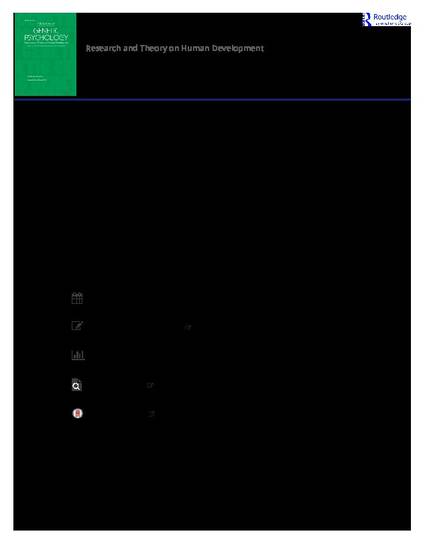
Article
Severe Social Withdrawal: Cultural Variation in Past Hikikomori Experiences of University Students in Nigeria, Singapore, and the United States
The Journal of Genetic Psychology
(2019)
Abstract
Hikikomori (social withdrawal that lasts six months or longer) is a growing problem among Japanese adolescents and young adults, with recent esti- mates that approximately 1% of Japanese youths will suffer from an epi- sode of hikikomori in their lifetimes. What remains unclear is whether hikikomori is a culture-bound syndrome or a condition impacting youths around the globe. Hence, the self-reported prevalence and psychosocial correlates of past experiences with hikikomori were examined in cross-sec- tional samples of university students from Singapore (n1⁄4147), Nigeria (n 1⁄4 151), and the United States (n 1⁄4 301). Following tests of measurement invariance, comparisons showed that past experiences with hikikomori were related to elevated levels of current loneliness and depressive symp- toms in each sample. However, analyses also revealed evidence of cultural variation in both the prevalence and the psychosocial correlates associated with past experiences of hikikomori, which taken together, provide prelim- inary evidence that the culture-bound characterization of hikikomori may not be appropriate.
Disciplines
Publication Date
2019
Citation Information
Jonathan Bruce Santo. "Severe Social Withdrawal: Cultural Variation in Past Hikikomori Experiences of University Students in Nigeria, Singapore, and the United States" The Journal of Genetic Psychology (2019) Available at: http://works.bepress.com/jonathan_santo/74/
